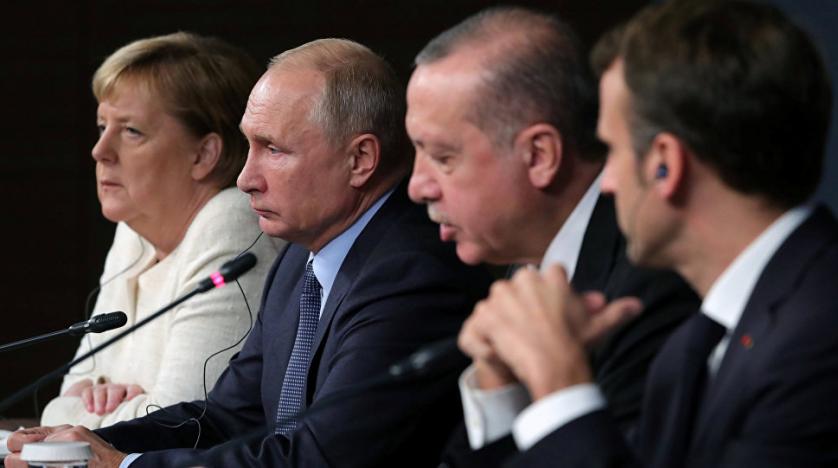
- ARAB NEWS
- 12 Jul 2025

Last week, Istanbul hosted two important events. On Thursday, the sixth Istanbul Mediation Conference brought together policymakers, diplomats, international organizations and non-governmental organizations to discuss the practice of mediation and the connection between emerging technologies and peace efforts. Turkish Foreign Minister Mevlut Cavusoglu and UN Secretary-General Antonio Guterres delivered the opening remarks.
The following day, the Organization of Islamic Cooperation (OIC) held its third Member States Conference on Mediation.
These timely conferences explored the importance of the mediation in a world where 60 percent of current conflicts are in the OIC area. Syria and, in particular, the developments in Iraq were top of the agenda at both conferences. The actions states, institutions and mediators can take to stabilize and resolve conflicts, against the backdrop of the new “glocal” zeitgeist, formed the focus of the discussions.
On the sidelines of the first conference, Cavusoglu expressed to his Iraqi counterpart a hope that peace and stability will come soon to a country that has been rocked by anti-government protests in the recent weeks. Guterres, meanwhile, said that “the meaningless cycle of wars should end.”
Just a day earlier in Geneva, the Syrian Constitutional Committee — which includes representatives from the regime, the opposition and civil society — convened for the first time, facilitated by the UN. Cavusoglu described this inaugural meeting as a “landmark, a foundation for progress, and in itself a clear success of mediation.”
The week’s cycle of events also included a meeting on Tuesday, also in Geneva, between the UN special envoy for Syria, Geir Pedersen, and the foreign ministers of Turkey, Iran and Russia. These talks involving the leading diplomats of the Astana peace process were their last ahead of the first meeting of the Constitutional Committee, which aims to map out the political future of the war-torn country.
As the diplomatic and mediation efforts for Syria and beyond gathered pace, there was breaking news: The death of Daesh leader Abu Bakr Al-Baghdadi, who was killed in a raid carried out by US forces in northwest Syria.
Turkish President Recep Tayyip Erdogan described Al-Baghdadi’s death as a turning point in the joint fight against terrorism. Turkey welcomed the development and said it would continue to support anti-terror efforts, as it has in the past.
The aftermath of Al-Baghdadi’s killing will continue to dominate the news but, in midst of all this, there was another interesting development. German Defense Minister Annegret Kramp-Karrenbauer proposed the establishment of an internationally controlled security zone in northeast Syria. It was one the attention-grabbing issues discussed at the meeting of NATO defense ministers in Brussels on Oct. 24-25.
Cavusoglu rejected the plan, dismissing it as “unrealistic,” and rebuffed German criticism of Ankara’s recent military operations in Syria. Interestingly, the EU had stated during these operations that it would not provide funding for any “safe zone” that might be created.
During a joint press conference with his German counterpart after the NATO meeting, Cavusoglu said Turkey’s trust in Germany “has been shaken” by the “excessive reactions” criticizing the offensive in northeast Syria. Germany was one of a number of EU states, including Italy, France, Spain and the UK, that announced plans to suspend the sale and export of arms to Turkey.
While Turkey has worked with Russia on the safe zone issue, at this point the best the EU can do is to engage with UN efforts and pursue another summit like the one a year ago involving the leaders of Germany, France, Russia and Turkey.
According to a YouGov survey commissioned by German news agency Deutsche Presse-Agentur, 58 percent of Germans polled want Turkey expelled from NATO over its military offensive in Syria. There was even stronger support for the introduction of economic sanctions and export bans. More than 2,000 Germans were interviewed between Oct. 25 and Oct. 28 for the survey.
There is an underlying tension between Turkey and the EU that has been brought to the surface by the Syrian crisis. Although both Turkey and the EU benefit from a mutual trade, security and migration pact, and despite energy resources in the Caspian that also make Turkey an important EU ally, the latest round of tensions has been another situation that has negatively affected the relationship.
The problem with the German proposal is that it is not only unrealistic, it is also ridiculous. Since the start of the Syrian conflict, Turkey has proposed the creation of a safe zone at least three times, and called on the international community to handle the task together. But the Europeans preferred to turn a deaf ear to these calls.
What Europe is trying to do now is board a train that has already left the station. While Turkey has worked with Russia on the safe zone issue, at this point the best the EU can do is to engage with UN efforts and pursue another summit like the one a year ago involving the leaders of Germany, France, Russia and Turkey.